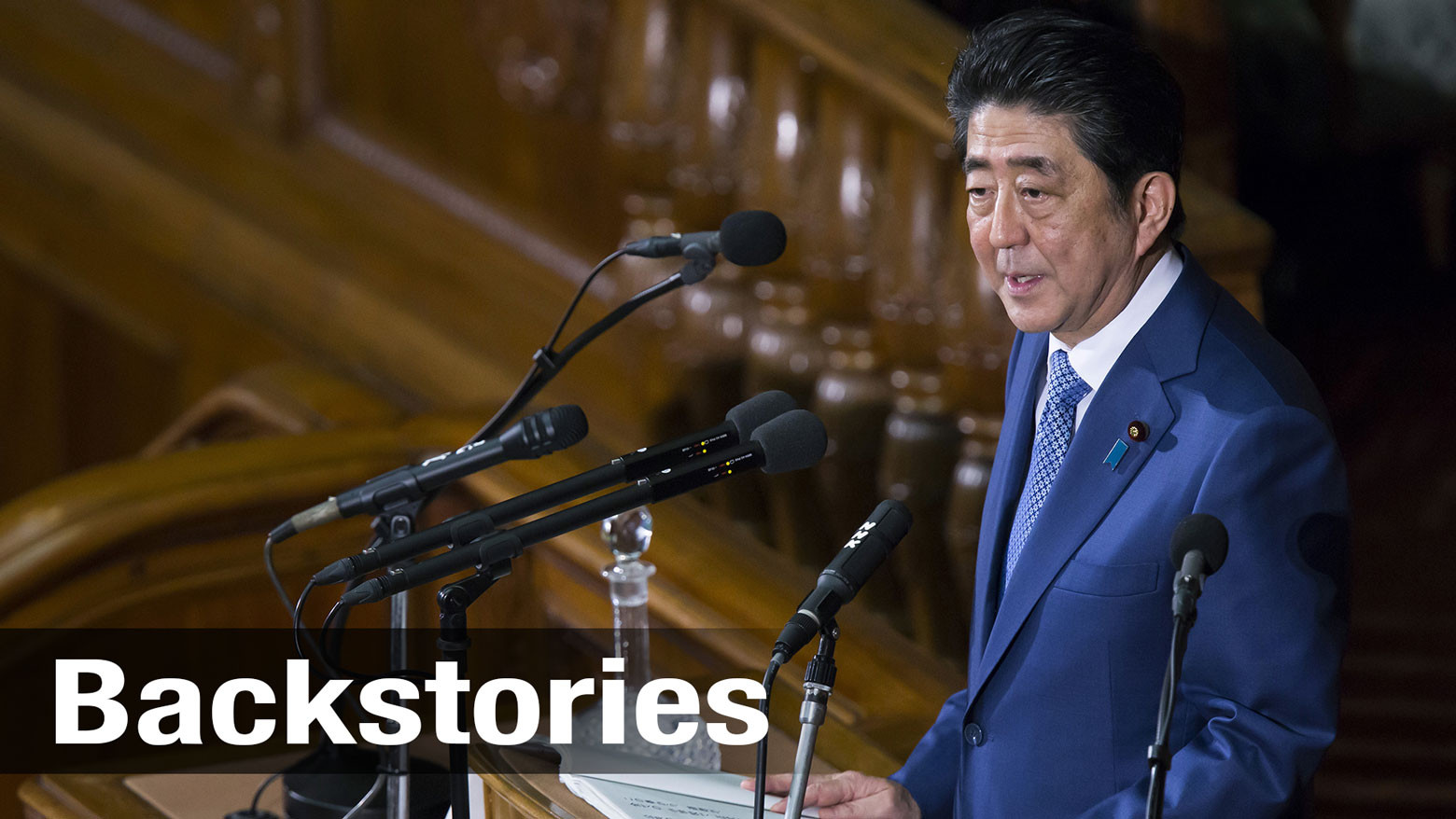The change between his first and second terms
Abe first became prime minister in 2006 at the age of 52, making him the youngest person to take on the role in the post-war era. At his first policy speech in 2006, he said, "I'm determined to make Japan a beautiful country." He used the words "Japan," "country" and "reform" frequently.
During his second term from 2012 to present, he used the words "world" and "economy" many times.
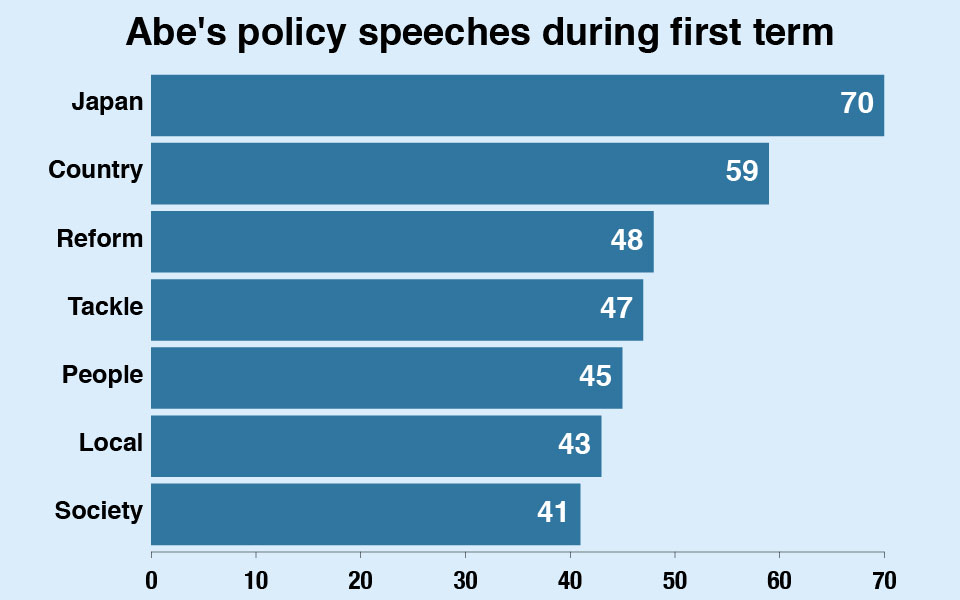
Hitotsubashi University Professor Koji Nakakita, who specializes in political science, analyzes that during Abe's first term, the leader thought he wouldn't be able to meet the public's expectations unless he emphasized "reform." Nakakita says this is because Abe's predecessor Junichiro Koizumi, who served as prime minister for five years, is thought to have succeeded by making reforms to public and private sectors.
Nakakita also says the word "country" didn't reverberate with the public very much and Abe suffered a defeat in the 2007 Upper House elections to the Democratic Party of Japan (DPJ) which had campaigned under the slogan "The peoples' lives come first."
When Abe returned to power in 2012, he used the words "reform" and "country" less and the word "growth," which he rarely used in his first term, much more.
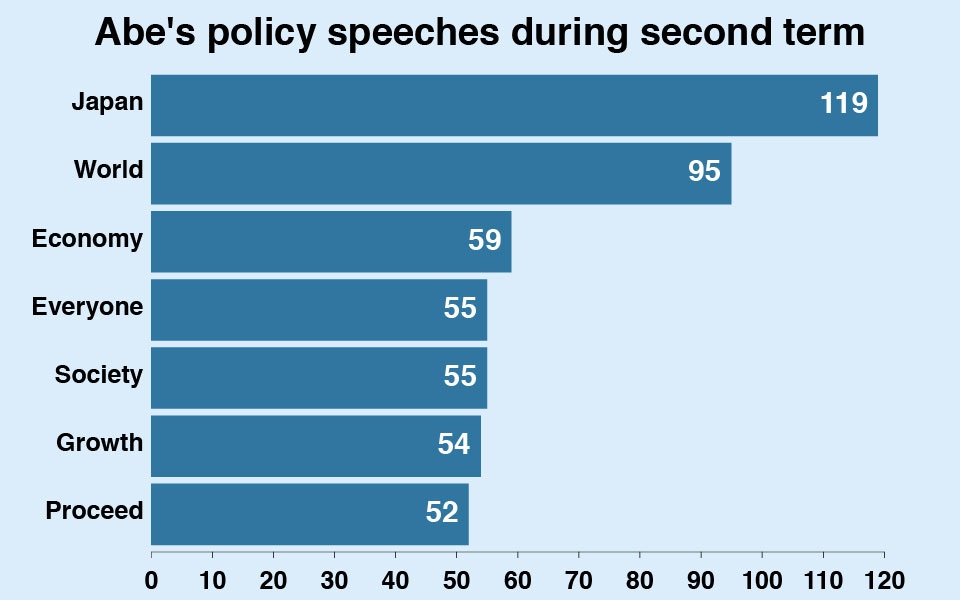
Abe's approval rate fell during his first term, but has been relatively steady during his second term.
University of Tokyo Professor Emeritus Takashi Mikuriya explains that it became easier for the public to accept what Abe was saying.
"In his first term, Abe mentioned 'reform' so many times that people got sick of hearing it. Everyone thought that there was no reform taking place, even though Abe referred to it often," he says. "Later, when people began to understand that economic growth brings stability to the nation, their views shifted and they were able to accept the word 'growth,' which Abe often came to use."
During his second term, Abe has often referred to his policies using coined words. Meiji University Professor Takashi Saito, an expert on the Japanese language, says there is a cleverness to Abe's coined terms that makes them hard to criticize.
"They're difficult to disprove. For example, if a politician were to pledge two percent economic growth and only one percent were attained, people could say that the goal was not achieved. But Abe uses phrases like 'reviving local areas' and 'reforming ways of work.' It's hard to prove that work place reform was not achieved or that local areas were not revived. So his coined phrases have been successful," says Saito.
Mikuriya says that Abe uses these words intentionally. "Churning out phrase after phrase gives the impression that things are getting done. This is why Abe keeps coining new phrases. These phases make it sound like Abe's doing something."
New phase in second term
Three years after Abe returned to power, there were several times when his approval and disapproval rate were at the same level. But Abe won a Lower House election and two Upper House elections. These victories have been the driving force of his administration.
NHK analyzed Abe's speeches given at the start of five national elections during his second term.
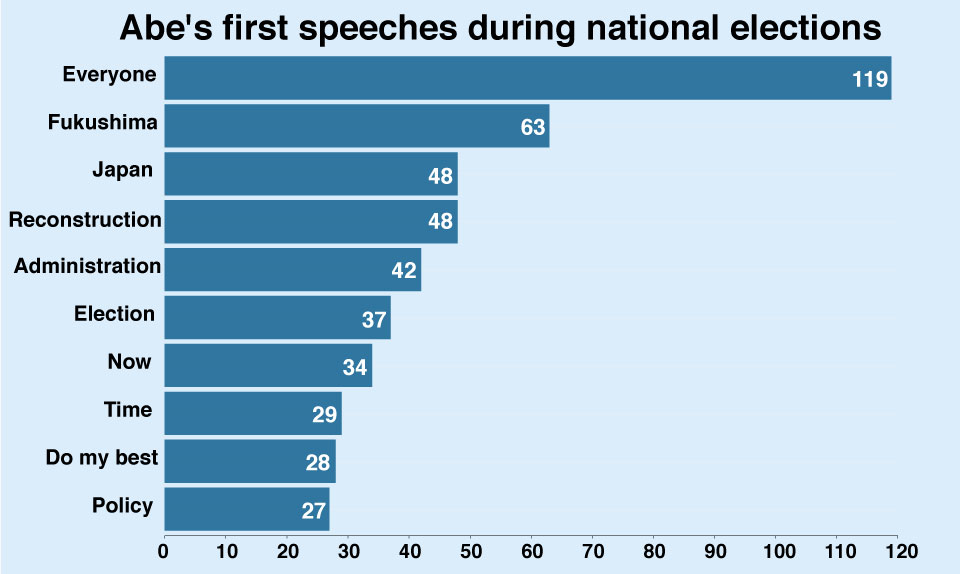
The words that were most used include "everyone," "Fukushima," "Japan" and "recovery."
Nakakita says that "Fukushima" and "recovery" sound natural because these words can be interpreted as the Abe administration's support for the region which was damaged by the 2011 earthquake, tsunami and nuclear accident.
He focuses on the word "time" and points out that Abe uses it in phrases such as "that time" or "the time under the DPJ-led administration." Abe used these phrases 29 out of 49 times to criticize the period when the DPJ was in power.
Nakakita says, "It's been nearly seven years since the DPJ administration ended, but its effect appears to be
lingering. Abe's long-serving administration emerged after the largest opposition force failed to lead. The most easily understood phase Abe used was, 'It must be better than the DPJ administration.' "
Fixed support for Abe
According to an NHK poll, the gap in the approval rate for Abe between LDP supporters and others is about 60 percent on average during Abe's second term. Over 80 percent of LDP supporters approve of Abe, while the figure is under 30 percent for supporters of opposition parties and those with no party affiliation.
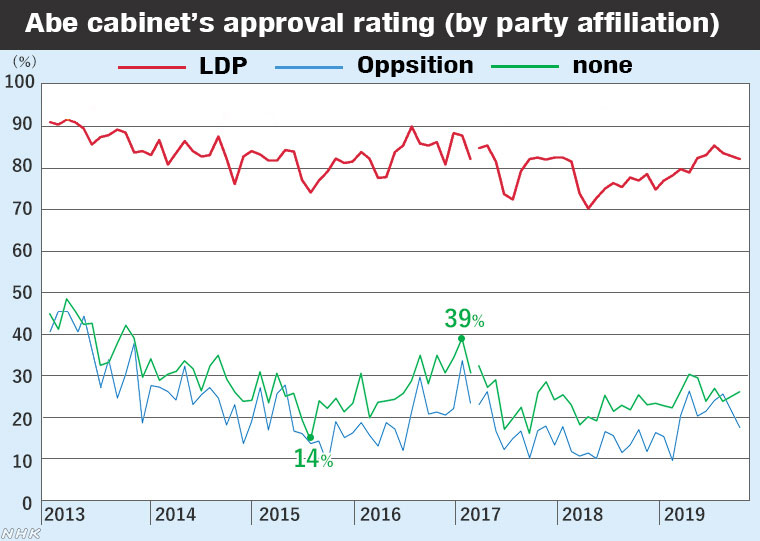
Naoyuki Sato, a marketing specialist, says that Abe relies on certain supporters to strengthen his administration.
"Abe may have realized that it's most effective if he gives his message to his supporters, as they will then spread his ideas to people around them," he says.
The average turnouts of national elections after Abe returned to power are around 50 percent. Mikuriya says, "People who support Abe's administration go to polling stations. Those who don't care or are unhappy with the candidates abstain from voting. This is a serious problem, but people in general don't have high expectations. It's been a matter of who wins in the low voter turnout and this is what has led to Abe's long term in office."
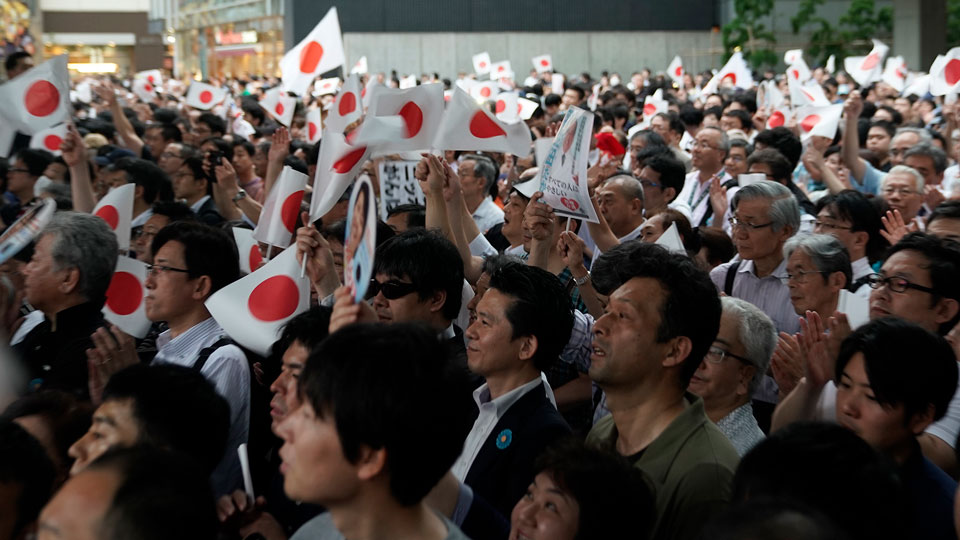
Currently, Abe is under fire in the Diet over his annual cherry blossom viewing party. The opposition parties are intensifying their criticism of his use of the publicly-funded event "to entertain supporters from his constituency."
Abe's third term as president of the LDP expires in September 2021, and he says he won't seek another term. The party has a rule barring a leader from seeking a fourth term, but some LDP members hope Abe will give it a try by amending the party's rule. Other LDP members are expected to start ramping up activities soon with an eye to succeeding Abe.
